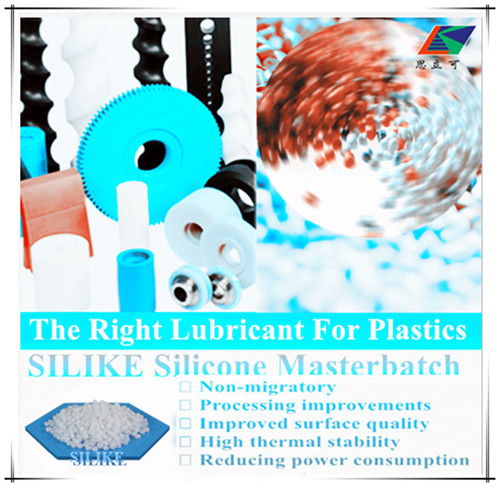Maziva za plastiko so bistvena za podaljšanje njihove življenjske dobe ter zmanjšanje porabe energije in trenja.Za mazanje plastike se je skozi leta uporabljalo veliko materialov, maziva na osnovi silikona, PTFE, voskov z nizko molekulsko maso, mineralnih olj in sintetičnih ogljikovodikov, vendar ima vsak neželene stranske učinke.
Torej, katero mazivo je koristno za plastiko?
Pri izbiri maziva je najpomembnejši dejavnik njegova združljivost s plastiko.
Voski z nizko molekulsko maso imajo omejeno toplotno stabilnost in se premikajo na površino, kar povzroča težave med obdelavo in traja le kratek čas, dokler se vosek ne obrabi.
Čeprav je PTFE trajno mazivo, ki se med obdelavo ne stopi ali migrira, je za dosego želenega mazanja običajno potrebnih 15–20 % PTFE. Ta visoka vsebnost PTFE lahko znatno poslabša mehanske lastnosti smole in poveča stroške.
Zavrzite svoje tradicionalnomazivaza plastiko, to je tisto, kar potrebujete!

Serija SILIKE LYSI z ultra visoko molekulsko masomasterbatch na osnovi silikonaki se ne seli in ponuja večjo vzdržljivost in zmogljivost kot PTFE.
Temeljijo na vseh vrstah nosilnih smol, kot so LDPE, EVA, TPEE, HDPE, ABS, PP, PA6, PET, TPU, HIPS, POM, LLDPE, PC, SAN itd.
Široko se uporablja kot učinkovit mazalni dodatek za vse vrste plastike. Ker peleti omogočajo enostavno dodajanje dodatka neposredno plastiki med predelavo, ti...silikonski dodatkiZagotavljajo znatno izboljšanje odpornosti proti obrabi in praskam v primerjavi s tradicionalnimi dodatki, hkrati pa omogočajo znatne prihranke stroškov, zmanjšujejo porabo energije in večjo svobodo pri formulaciji, ni težav z združljivostjo in disperzijo.
Čas objave: 7. junij 2022





